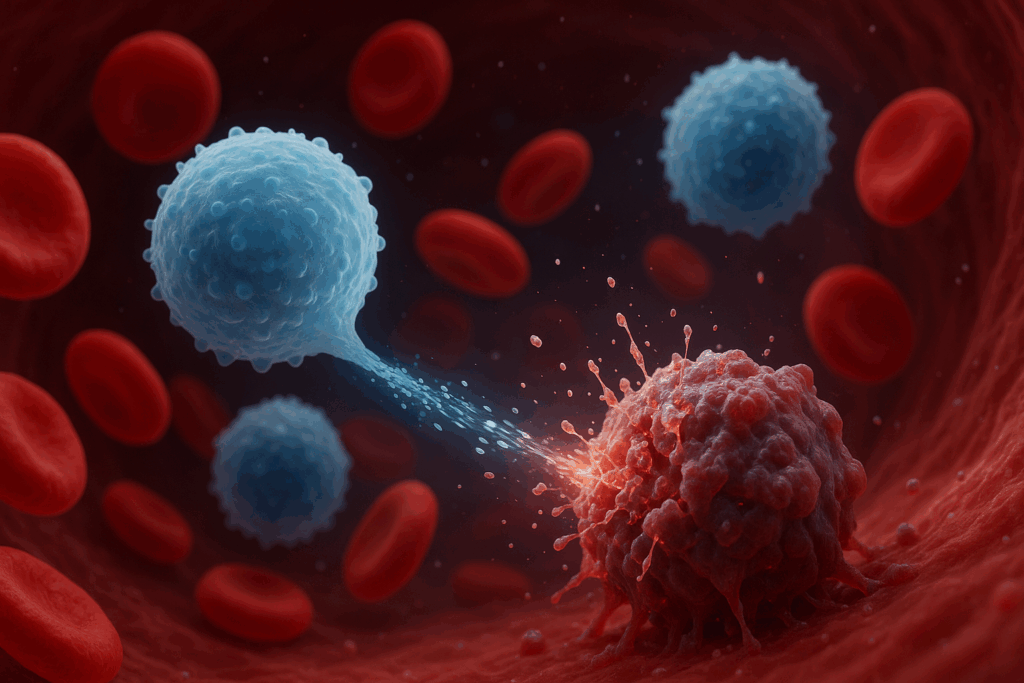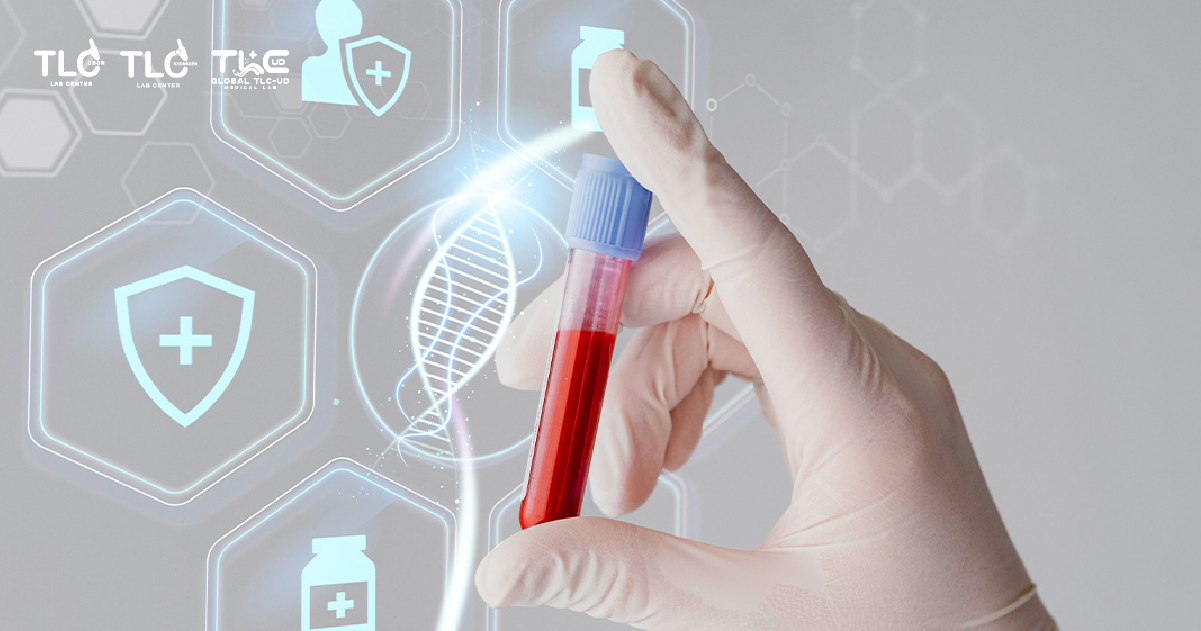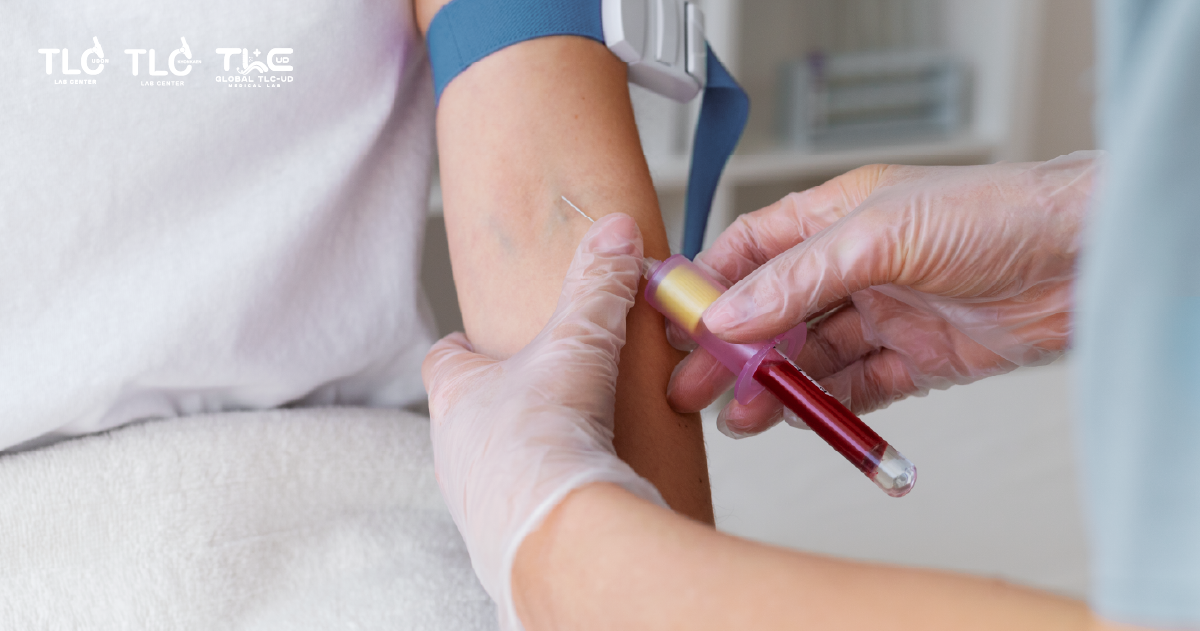NK cell testing isn’t part of routine screening. It is used in specific cases where a doctor suspects immune system dysfunction, pregnancy-related complications, or certain infections or cancers. Measuring NK cells levels can help tailor a more appropriate treatment plan.
What are NK cells?
NK cells are a type of white blood cell (lymphocyte) that plays a vital role in the body’s natural immune system. Their primary function is to detect and eliminate abnormal cells such as:
- Cells infected by viruses.
- Cancer cells
- Genetically altered cells
Unlike T-cells or B-cells, NK cells can respond quickly to infected or tumor cells without being activated beforehand.
Origin: NK cells are produced in the bone marrow and are found in the blood, spleen, and other tissues.
Surface markers: Human NK cells are typically identified by markers on their surface – specific proteins known as CD16 and CD56.
Functions of NK cells
- They kill target cells directly: NK cells can recognize and destroy abnormal cells without prior sensitization like in the adaptive immune system.
- Release cytotoxic substances: Such as perforin and granzyme, which cause the target cell to break apart or die through apoptosis (programmed cell death).
- Secrete immune-stimulating cytokines: Such as interferon-gamma (IFN-γ), which helps activate other immune cells like macrophages and T cells.

Importance of NK cells for health
| Health Aspect | Role of NK Cells |
|---|---|
| Cancer | Detect and eliminate early-stage cancer cells |
| Infections | Destroy virus-infected cells (e.g., influenza, HIV, COVID-19) |
| Immunity | Help control inflammation and support other immune responses |
| Chronic Disease Prevention | Reduced NK cell function is linked to chronic diseases like diabetes, hypertension, and heart disease |
Why test NK cells?
NK cell testing (either counting them or assessing their activity) is not routine but may be considered in certain circumstances:
- Evaluate immune function: To assess abnormal NK cell levels or activity, especially in people with chronic infections such as EBV, CMV, HPV, HIV, etc.
- Assess immune deficiencies: For those with frequent infections, unexplained fatigue, or unusual immune weakness.
- Autoimmune evaluation: In some autoimmune diseases, NK cell function may be impaired.
- Recurrent pregnancy loss: Excessively high NK cell activity may attack the embryo before it can implant in the uterus.
- Cancer or immunotherapy monitoring: NK cell-based therapies or CAR-NK therapy are being explored in cancer treatment.
- Post bone marrow transplant follow-up: To see whether the body can regenerate NK cells and how they function.
- Chronic Fatigue Syndrome (CFS): NK cell dysfunction is observed in many CFS patients.
Why is NK cell testing important?
Abnormal NK cell levels or function can:
- Help diagnose primary or secondary immunodeficiencies
- Guide individualized treatment planning in patients with immune issues, cancer, or autoimmune disorders
- Provide clues in cases of unexplained infections or immune dysregulation
However, interpretation of NK cell test results should be done by a medical professional.
Laboratory Testing
Using blood tests:
• NK cell count
• NK cell activity
Note: Blood samples should be analysed within 6 hours of collection for accuracy
References :
- Vivier, E., Tomasello, E., Baratin, M., Walzer, T., & Ugolini, S. (2008). Functions of natural killer cells. Nature Immunology, 9(5), 503–510. [ nature.com ]
- Orange, J. S. (2013). Natural killer cell deficiency. The Journal of Allergy and Clinical Immunology, 132(3), 515–525. [ jacionline.org ]
- Morvan, M. G., & Lanier, L. L. (2016). NK cells and cancer: you can teach innate cells new tricks. Nature Reviews Cancer, 16(1), 7–19. [ nature.com ]
- Cooper, M. A., Fehniger, T. A., & Caligiuri, M. A. (2001). The biology of human natural killer-cell subsets. Trends in Immunology, 22(11), 633-640. [ cell.com ]















